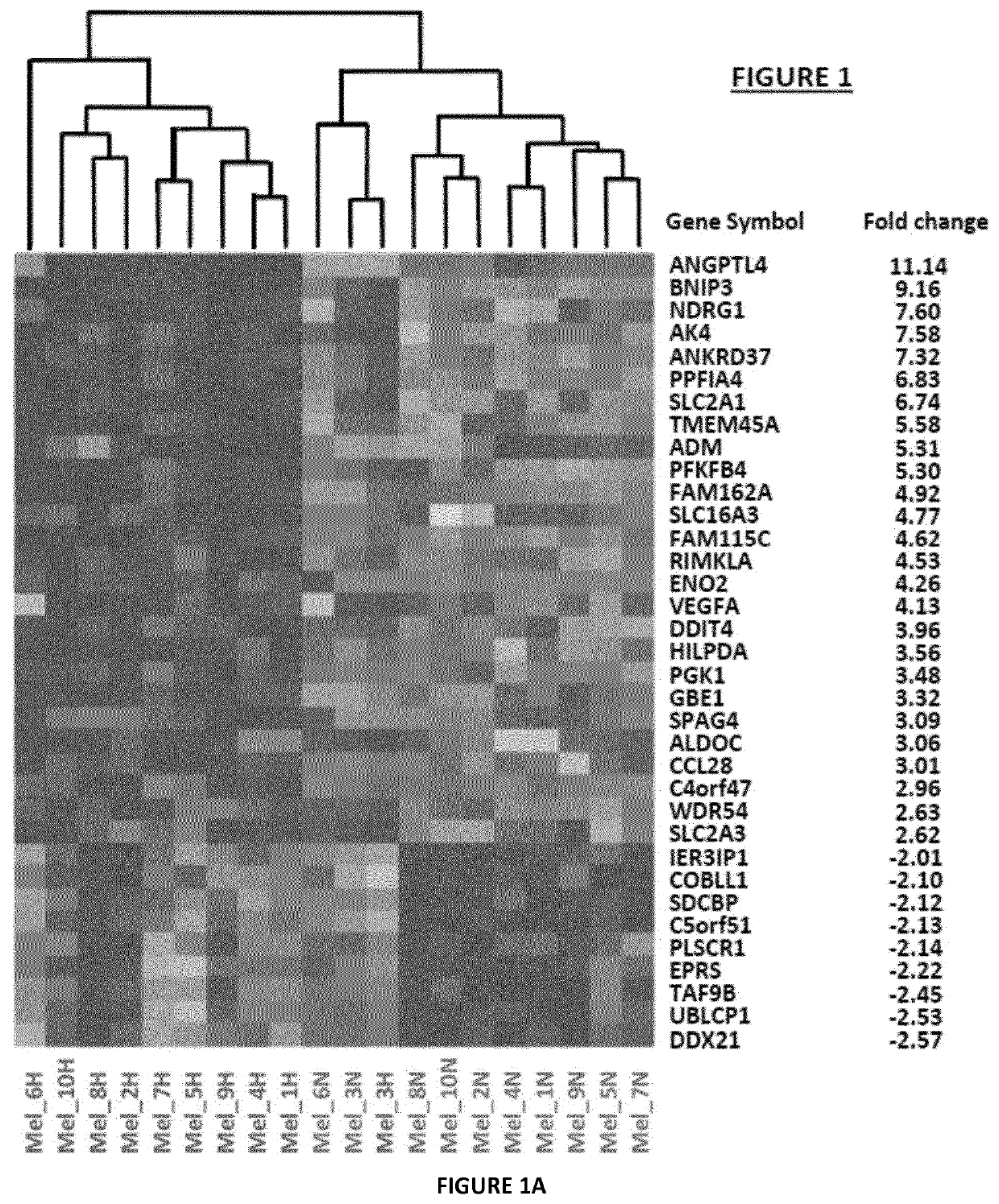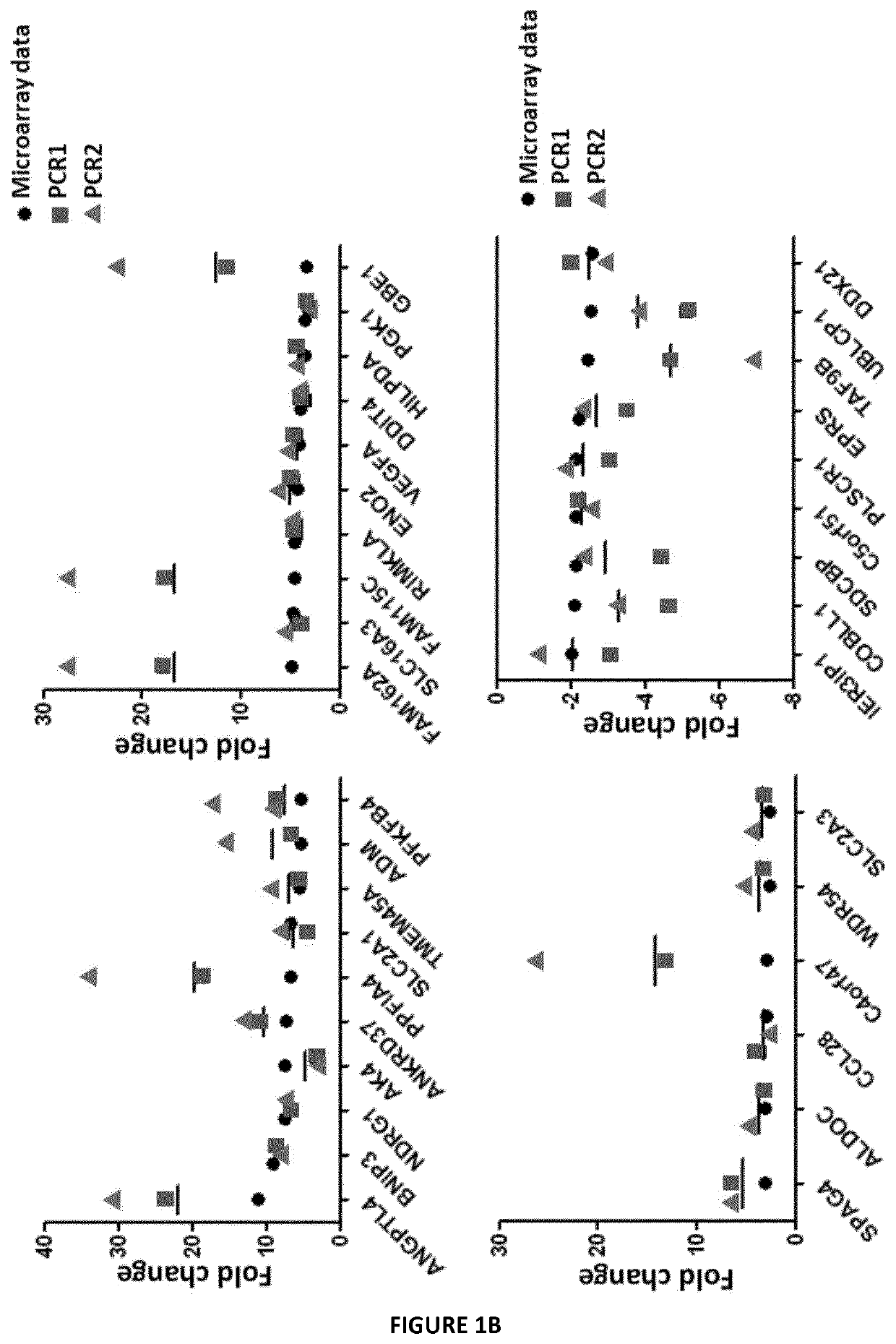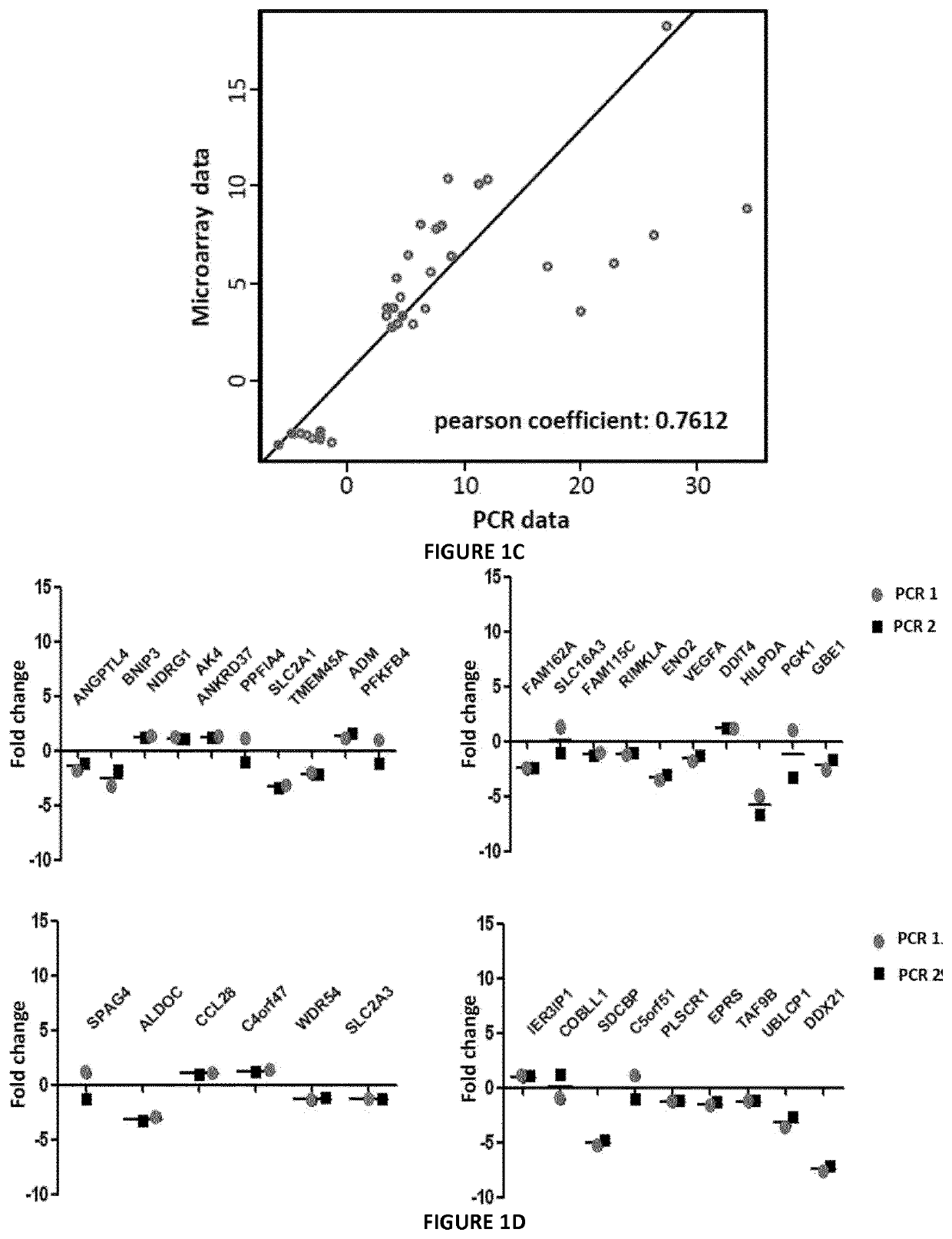Method for assessing the response to PD-1/PDL-1 targeting drugs
a pdl-1 and targeting drug technology, applied in the field of assessing the response to pdl-1 targeting drugs, can solve the problems of high cost and inability of pdl-1 inhibitors, and achieve the effects of long overall survival, good therapeutic benefit, and long disease-free survival
- Summary
- Abstract
- Description
- Claims
- Application Information
AI Technical Summary
Benefits of technology
Problems solved by technology
Method used
Image
Examples
examples
Results
[0127]Transcriptional Changes Associated with Hypoxia on Primary Melanoma
[0128]The inventors analyzed the changes in global transcript level in response to hypoxia stress. For this purpose, they used DNA microarrays to examine the gene expression program in response to hypoxia (1% O2) in different melanoma cell lines established from melanoma patients. They profiled global mRNA levels at a time point (24 h). The different mRNA samples were analyzed by hybridization to DNA microarrays. Analysis with microarray assay (AGILENT SurePrint G3 Human GE 8×60K Microarray, Agilent Technologies, AMADID 28004) of gene expression profile of human primary cell lines of melanoma cultured at 1% oxygen versus 21% oxygen, permitted to establish a signature of 35 genes (FIG. 1A). 26 genes up regulated (fold-change≥2.5) and 9 genes down regulated under hypoxic conditions (fold change≤−2) and an adjusted p-value (FDR)<0.05. Cluster data analysis indicates that these genes belong to different path...
PUM
| Property | Measurement | Unit |
|---|---|---|
| pH | aaaaa | aaaaa |
| area | aaaaa | aaaaa |
| area | aaaaa | aaaaa |
Abstract
Description
Claims
Application Information
 Login to View More
Login to View More - R&D
- Intellectual Property
- Life Sciences
- Materials
- Tech Scout
- Unparalleled Data Quality
- Higher Quality Content
- 60% Fewer Hallucinations
Browse by: Latest US Patents, China's latest patents, Technical Efficacy Thesaurus, Application Domain, Technology Topic, Popular Technical Reports.
© 2025 PatSnap. All rights reserved.Legal|Privacy policy|Modern Slavery Act Transparency Statement|Sitemap|About US| Contact US: help@patsnap.com



